The storied past of security guard Doug Herman
Security Guard Doug Herman waves to a student as he walks down the hall. The Vietnam veteran and AIM member has become a fixture at South.
There you are. Joking around in the hall. You goof off with your buddy, laughing as you walk down the corridor. You hear the slight buzz of a walkie talkie and turn the corner to see security guard Doug Herman. You may expect him to ask for your pass or walk you out of the school if it’s too late in the hour, but there is more to this South High fixture.
Doug Herman may be seen as a hardened security guard, just another guy who works at the school and nothing more. Dig a little deeper and you may see a military veteran, with two purple hearts and a silver star, who was integral in the struggle to regain indigenous culture, and everyday tries to keep the school on schedule.
Coming straight out of high school at 18, Herman was drafted into the Vietnam War. During his vacation before deployment, he went out and helped defend the American Indian Movement’s occupation of the Wounded Knee Reservation. There, he developed connections with many important leaders in the struggle for American Indian liberation, including Clyde Bellecourt and Dennis Banks. When Clyde Bellecourt, founder of the American Indian movement and Indigenous civil rights activist, saw him many years later he said, “you were the goddamn kid in the army uniform,” according to Herman.
He would do supply missions and just try to keep the camp running smoothly. “There, I learned a lot about my identity as an Indian,” Herman said. Since he was supposed to deploy in just a few months, he had to keep a low profile. “If they would have caught me, I still would be in Leavenworth [a military prison] right now.” Herman took many risks at Wounded Knee and would continue to take risks for his community members when he was deployed to Vietnam.
While in his two tours of Vietnam, Herman saw much combat action. He was attacked multiple times and twice was shot and injured with shrapnel in the shoulder. While many would shy away from battle after such traumatizing experiences, Doug protected his fellow soldiers even more and in one moment, defied his officers and saved a life.
The enemy combats were 30 yards away and advancing fast. The commanding sergeant of his platoon saw this as an unwinnable battle. Out in front, a fellow soldier had been injured and had no way of moving. Notwithstanding, the commanding officer called for the troops to retreat. But, Herman would have none of it. He ran from the line, under heavy fire, and pulled his comrade over his shoulder. Miraculously, he survived the gunfire. “I bandaged the guy’s leg up and ran through the fire zone,” Herman remembered. When he got back, he bandaged up the soldier until he could move with the pontoon. Then, he “punched the sergeant for leaving a fallen comrade behind.”
Herman was furious that an officer would leave someone behind to “save his own ass.” While the sergeant hated him for punching him, the army immediately gave the sergeant a dishonorable discharge. Herman was flown to D.C. but did not know why. He was invited to an awards ceremony and there he was awarded a Silver Star for “gallantry in action.” The army recognized that there was great risk to Herman that was inherent in his saving of the injured soldier. But, Herman stays humble. “I did what any good soldier would do,” he told me, laughing at the perceived absurdity of not risking your life for another.
Back in the Twin Cities, Herman began to teach at the formerly existent Red School. This was a school for Native American youth. He was instrumental in organizing trips to reservations and teaching cultural traditions. He believed having a cultural heritage was important and taught students all about smudging and using Native religious practices like the sweat lodge and burning sage. “We would go to lodges with people from Canada to Montana,” he said. These religious practices play a major part in his daily life, in which Herman smudges every morning “in the four directions with sweetgrass, sage and tobacco,” said Herman, to give him strength for the day and cleanse him. He also tries to learn and pass on the culture because “the knowledge is so beautiful,” said Herman. Now at South High, as a security guard, Herman continues to try to create a good and respectful school environment for all.
In his four years at South, Herman tries to help out all students. He uses his military background a lot in the way he conducts himself at South. “Doug has a mentality that he’s on top of his game. He makes sure everything is in order. He gets that from the army,” said fellow security guard Dexter Griffin. Once you get past his rough outer shell, “he is very kind,” Griffin continued. “I can get along with kids and get to know them. I try to explain to them that everyone has bad days and you just need to refresh yourself. I try to teach them the importance of education,” said Herman. He counsels students on grades, attendance and the need to get a good education.
“Doug helps me know what events are happening in the school and tells me how to do well in school,” said freshman George Yellow.
He helps teach in All Nations about cultural traditions. “He comes in and smudges with us,” says All Nations teacher and coordinator Bezh Butler. Butler said he, “likes the fact that he’s an elder, he’s a veteran, and he’s been here to help the All Nations Program. He’s a voice for All Nations on security.”
For his own future, he says he’s “thinking of going back to college, I’m trying to get my master’s in Native American Studies.” As his words of advice for students, he says “If you don’t get an education, your gonna be working for minimum wage the rest of your life. Always remember, the positive always outweighs the negative.”
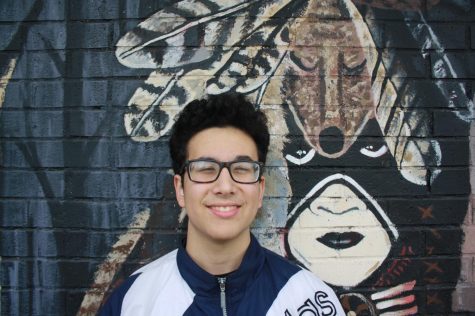
Senior Gabe Chang-Deutsch is returning as the News editor for his fourth year in the Southerner. Gabe spends a majority of his time debating for South’s...

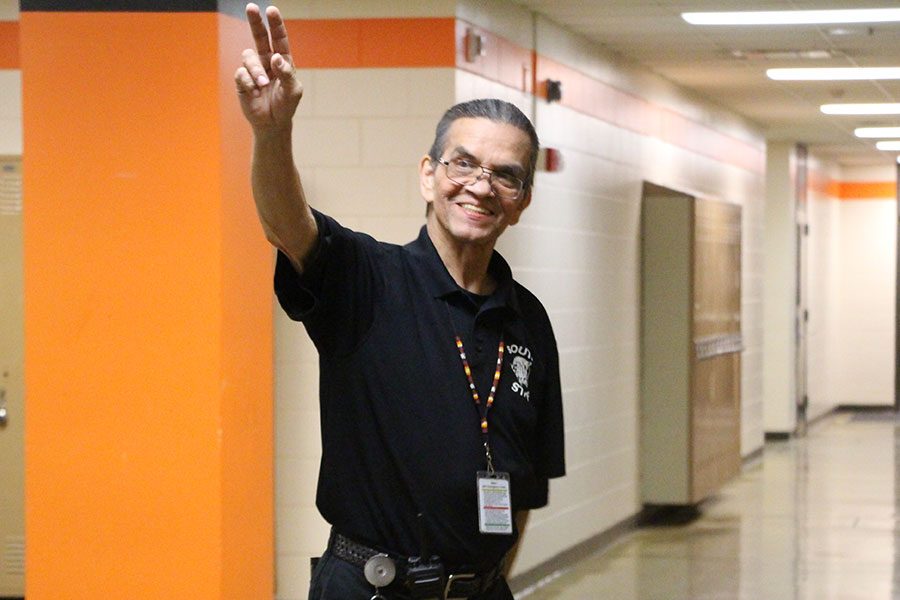

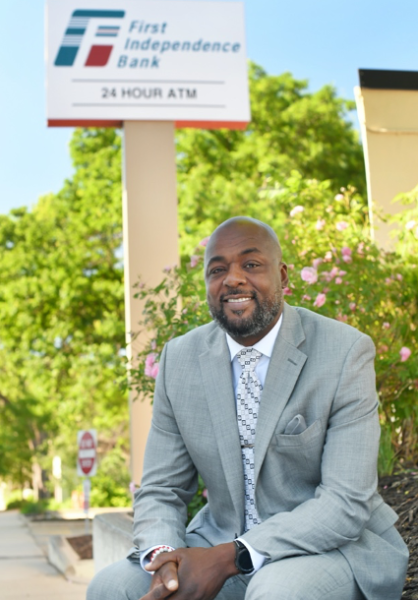

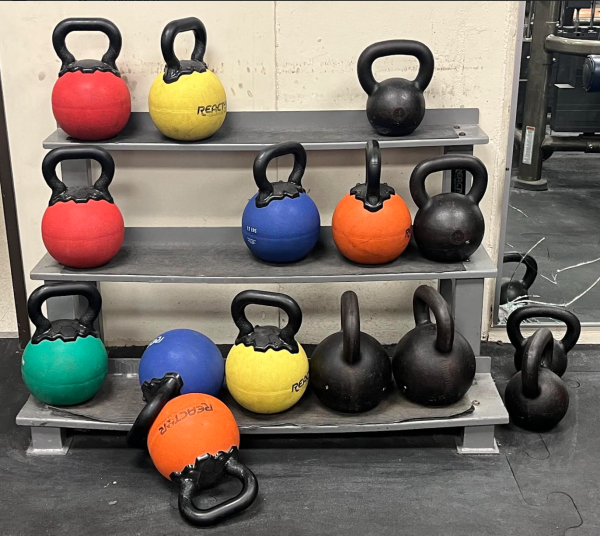

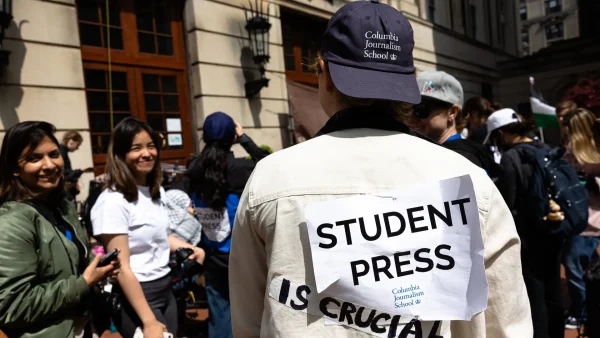

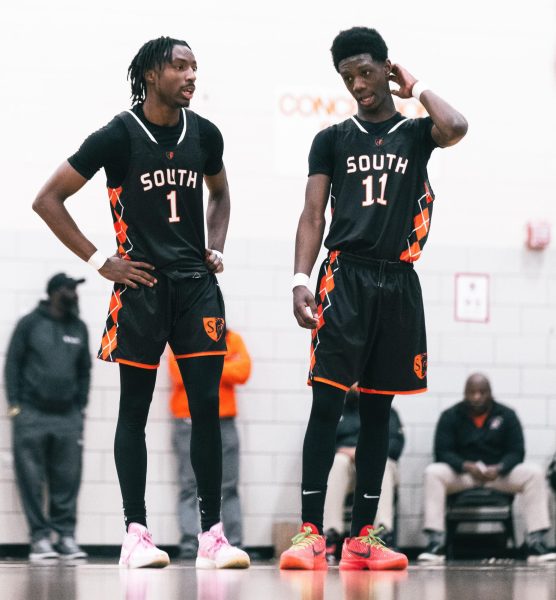
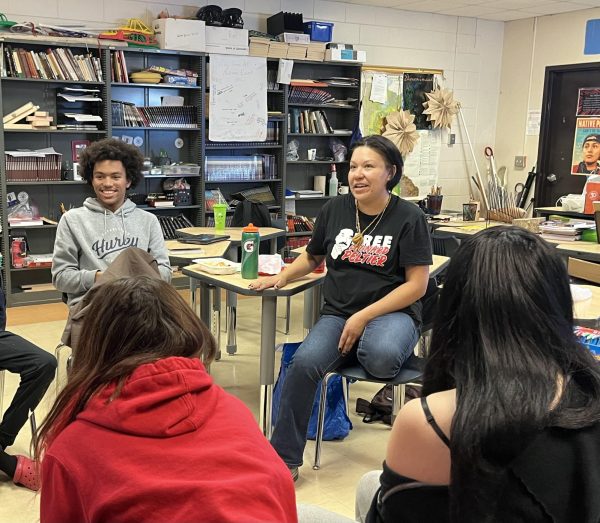
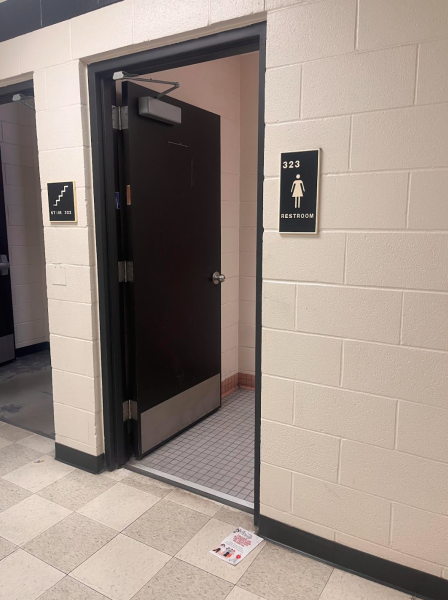


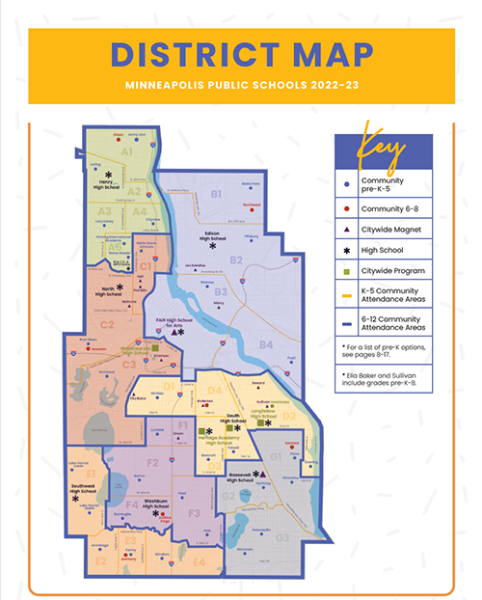
A Fan • Jan 22, 2018 at 6:32 pm
I really enjoyed gabes story it was very moving.